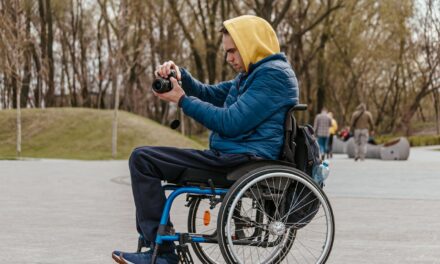Motorcycle riding offers an exhilarating sense of freedom and adventure, but it also carries significant risks. Motorcycle accidents are often more severe than typical car crashes due to the limited protection motorcyclists have compared to drivers in enclosed vehicles. When an accident occurs, understanding your legal rights, responsibilities, and avenues for compensation is crucial.
In this comprehensive guide, we will explore the key aspects every motorcycle rider should know about accidents, liability, and their legal rights, ensuring you are prepared and informed in case the worst happens.
Understanding Motorcycle Accidents: Common Causes and Risks
Why Are Motorcycle Accidents More Dangerous?
Motorcyclists face a much higher risk of injury or death in an accident than car drivers. According to data from the National Highway Traffic Safety Administration (NHTSA), motorcyclists are roughly 28 times more likely to die in a crash compared to occupants of passenger cars.
Several factors contribute to this alarming statistic:
- Lack of Physical Protection: Unlike car drivers, motorcyclists are exposed and lack safety features such as airbags, seatbelts, and protective cabins.
- Smaller Size: Motorcycles are smaller and harder to see, especially at intersections or during lane changes.
- Vulnerability to Road Hazards: Debris, potholes, or slippery surfaces that might be minor for cars can be catastrophic for motorcycles.
- Higher Skill Requirement: Motorcycles require more skill, balance, and quick reflexes to operate safely, and mistakes can be costly.
Common Causes of Motorcycle Accidents
Some of the most common causes of motorcycle accidents include:
- Left-Turning Vehicles: One of the leading causes of motorcycle collisions occurs when a car turns left in front of an oncoming motorcycle.
- Lane Splitting: Riding between lanes of traffic can be risky, especially when drivers are not expecting a motorcycle to pass.
- Speeding and Reckless Driving: Both motorcyclists and other drivers who exceed speed limits or drive aggressively can cause accidents.
- Distracted Driving: Texting, eating, or using a phone while driving can lead to dangerous oversights, especially when it comes to spotting motorcycles.
- Driving Under the Influence: Alcohol or drug impairment is a significant risk factor in both motorcycle and vehicle crashes.
Legal Rights of Motorcyclists After an Accident
Do Motorcyclists Have the Same Rights as Car Drivers?
Yes, motorcyclists have the same legal rights as drivers of other vehicles on the road. This includes the right to file insurance claims, seek compensation for injuries, and hold negligent parties accountable for damages. However, due to biases and misconceptions, motorcyclists sometimes face challenges when asserting these rights.
Compensation You May Be Entitled To
Following a motorcycle accident, injured riders can pursue compensation for:
- Medical Bills: Including hospital stays, surgeries, rehabilitation, and future medical care.
- Lost Wages: Compensation for income lost due to time off work or reduced earning capacity.
- Pain and Suffering: For physical pain, emotional distress, and diminished quality of life.
- Property Damage: Costs associated with repairing or replacing the motorcycle and other damaged property.
- Wrongful Death Claims: In the tragic event of a fatal motorcycle accident, surviving family members may seek damages.
Determining Liability in Motorcycle Accidents
Who Is Liable in a Motorcycle Accident?
Liability in motorcycle accidents hinges on proving negligence. The at-fault party can vary depending on the circumstances:
- Other Drivers: Car or truck drivers who violate traffic laws or drive negligently are commonly at fault.
- Motorcycle Manufacturers: In cases where defective parts or design flaws contribute to an accident.
- Government Entities: Poor road maintenance, inadequate signage, or dangerous construction zones can make local authorities liable.
- Motorcyclists Themselves: If the rider was speeding, intoxicated, or otherwise reckless, they might be partially or fully liable.
Comparative Negligence and Its Impact on Your Case
Many states, including Georgia, follow a comparative negligence rule. This means that if you are found partially at fault, your compensation may be reduced proportionally. For instance, if you are 20% responsible, you may still recover 80% of the awarded damages.
Understanding how comparative negligence works is vital in protecting your financial interests after an accident.
Steps to Take After a Motorcycle Accident
Immediate Actions at the Scene
- Seek Medical Attention: Even if injuries seem minor, always get checked by medical professionals.
- Call Law Enforcement: File an official accident report.
- Document the Scene: Take photos of the accident, vehicle damages, injuries, and road conditions.
- Gather Witness Information: Obtain names and contact information of any witnesses.
- Avoid Admitting Fault: Do not speculate or accept blame at the scene; stick to factual observations.
Consulting a Motorcycle Accident Attorney
Hiring an experienced motorcycle accident attorney can be critical in building a strong case, handling insurance companies, and ensuring your rights are protected. Professionals like John Foy, known for their dedication to accident victims, can help you navigate the legal process and fight for the compensation you deserve.
Dealing With Insurance Companies: Pitfalls to Avoid
Insurance companies are businesses, and their goal is to minimize payouts. Common tactics include:
- Offering Quick, Lowball Settlements: These are rarely enough to cover long-term medical costs and lost income.
- Denying Liability: Insurers may argue that the motorcyclist was at fault or contributed to the accident.
- Delaying Claims Processing: Dragging out the process can pressure victims into settling for less.
Always consult a lawyer before accepting any settlement or providing a recorded statement.
How Helmet Laws and Safety Equipment Affect Claims
The Role of Helmet Use in Injury Claims
Many states have mandatory helmet laws, which can affect your compensation claim. If you were not wearing a helmet and suffered a head injury, the defense might argue you contributed to your injuries, even if the other party caused the crash.
However, lack of helmet use does not automatically prevent you from receiving compensation, especially for injuries unrelated to head trauma.
Protective Gear and Liability Considerations
Using appropriate safety gear, including jackets, gloves, boots, and reflective clothing, can reduce injury severity and strengthen your case by showing responsible riding behavior.
Preventative Measures: How Motorcyclists Can Stay Safe
While you cannot control others’ actions on the road, you can reduce your risks by:
- Wearing a DOT-approved helmet and protective gear.
- Taking defensive driving courses.
- Staying visible through lights, bright clothing, and positioning.
- Following speed limits and traffic laws.
- Avoid riding under adverse weather conditions.
By being proactive, motorcyclists can minimize their vulnerability to accidents.
Resources for Motorcycle Accident Victims
For those seeking further guidance on motorcycle accidents, the Forbes Advisor’s guide on motorcycle accidents offers additional insights into your rights, legal considerations, and tips for dealing with insurance companies.
Additionally, if you want to protect your rights after a motorcycle wreck, it’s advisable to consult specialized attorneys familiar with the intricacies of motorcycle accident claims.
Conclusion
Motorcycle accidents can be devastating, but understanding your rights, responsibilities, and the legal landscape can make a significant difference in your recovery and financial future. Riders who arm themselves with knowledge, take preventative measures, and seek professional legal assistance are better positioned to recover fair compensation and hold negligent parties accountable.
Whether you’re a seasoned rider or new to motorcycling, staying informed about accident risks, legal rights, and post-accident procedures is essential. Awareness today could protect your life and your legal rights tomorrow.






